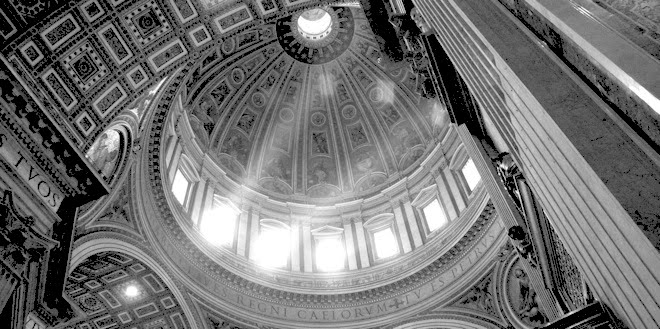Due to course I took last semester that covered Josef Pieper’s Liesure: the Basis of Culture and having recently been reading Pope Benedict XVI’s new encyclical Caritas in Veritate, I have been noting various parallels that run between the two. Pieper essentially argues in his work that if one does not get liesure right, one will never get work right. Individuals and society must first be in silence, receive the truth for its own sake, and work must be in line with this truth. Similarly, in the Holy Father’s work, there is this primacy that is given to liesure. In so much as our work is necessary and good, it must flow out of and be directed towards that which we have received from Christ. It is in the silence of study and prayer that one discerns the truth of God and his infinite goodness and love. The silence of study and prayer also reveals the truth about man. This truth is especially needed in our current time of various crises. The Holy Father says to this point, “The crisis thus becomes an opportunity for discernment, in which to shape a new vision for the future [author’s emphasis]” (pp. 21, Pope Benedict XVI). While some may be inclined to shout for actions to be taken, Benedict is calling for just the opposite.
Silence is a difficult thing to have in our time. Often, we Americans view times of silence with dread. In silence we submit to moments where we are forced to engage with the eternal. We are forced to ask the questions that can seem nearly impossible to answer. Our human frailty never does fully answer them. We face mysteries. Yet, this is the kind of activity out of which flows wisdom. When we wrestle with the paradoxes, we come to see the greater meaning and the end of all our actions, which in turn enables us to do them with greater wisdom. Though one should certainly not reduce the silence of study and prayer to its use, for God loves us and is not a tool, one will learn from them. Consequently, the whole of our lives are enriched.
























